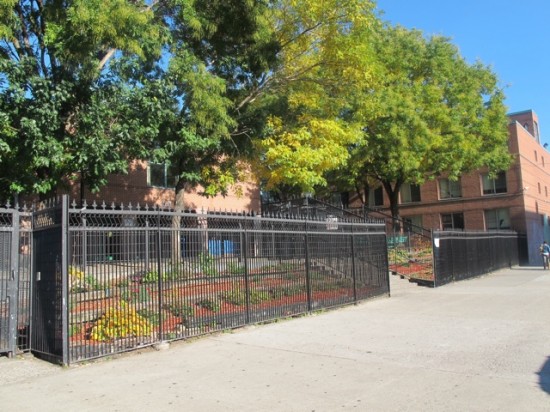
Homeless advocacy organizations are scrambling to find alternative housing options for the thousands who will be displaced because of the termination of a city and state funded housing program due to budget cuts.
The urgency comes at a crucial time because of an anticipated resolution of a lawsuit in the city’s favor, discontinuing the government funded Advantage Program.
In the meantime, distressed families are living on edge without knowing whether their November rent will be paid.
“It’s nerve-racking not knowing month to month whether or not they are going to pay their part,” said Karla Franklin, a single mother of three who fears ending up back in the shelter system.
Franklin entered the Advantage Program in late January and moved into a two-bedroom apartment in Morrisania with her family.
About 12,000 households will be affected by the closing of the Advantage Program in March, according to the Legal Aid Society. Half of those households are in the Bronx, which has the highest number of participants in the program with 6,602 active leases signed in March. The program was the only one in the state that helped families transition from the shelter system into permanent housing by providing rent subsidies to landlords.
The one-year program, which began in August 2010, required qualified participants over 18 to work 35 hours a week, earn minimum wage or above, and contribute 30 percent of their gross income towards rent. Participants could opt for second year rental assistance if they met renewal criteria, which included tenant payment of 40 percent of the rent.
“The elimination of the Advantage program leaves a serious void in the City’s homeless policy,” sad City Councilwoman Annabel Palma,, who is also the General Welfare committee chair, adding she hoped the city will help those impacted by the cuts.
In April, the Department of Homeless Services announced it would no longer sign new leases for the program due to withdrawal of state and federal funding. In response, the Legal Aid Society filed a class-action lawsuit on behalf of the 37,000 individuals in the program to block its demise.
A Manhattan Supreme Court Judge ruled in September that the city could shut the program down, but Legal Aid appealed and DHS was obligated to pay rent for October.
Whether or not rent for November will be paid is still in limbo. If the final appeal is settled before November, tenants will have to pay the full amount of their rent and those who can’t, will find themselves being dragged to housing court by their landlords.
Franklin lived in a family shelter in the Bronx, since June 2009 before they moved into their apartment. She holds two part-time jobs as a custodian and receptionist at a non-profit organization and brings home $550 every two weeks after taxes working for $10 an hour. Her oldest daughter, 23, works at Home Depot part-time while her oldest son, 19, attends Hostos Community College and younger son, 17, attends high school.
The stressful ordeal of relying on a government-funded program has left Franklin, 47, uncertain about the future of her family. Without the subsidy, Franklin said she could not afford the rent and would be evicted, leaving her no choice but to return to the shelters.
“My family has had a peace of mind since we’ve moved to this apartment because you don’t have to worry about little things like you do in the shelters like meeting curfew,” she said. “We tried not to let the system break us and what we have as a family.”
The shelter system is already seeing an increase of calls from others like Franklin who fear being displaced and may have to return to already crowded shelters, according to advocacy groups and city officials.
The Jackson Ave. Family Residence in the Bronx has already taken in two families that were in Advantage, but does not have room to take in anymore.
Wanda Cruz, executive director at Jackson Ave. said her staff is expecting a wave of calls soon from people who need a place to stay.
Officials at other organizations, such as New Destiny Housing, a residence based in the city that deals with domestic violence clients, also said they have experienced an increase in call volumes from Advantage clients.
“They all feel an overwhelming sense of anxiety because they were assured the program would pay for part of their housing and now they are thrown into turmoil,” said HousingLink Director at New Destiny, Catherine Trapani.
Christy Parque, executive director of Homeless Services United, said the solutions need to be as diverse as the population they serve.
“You can’t have a one size fits all when it comes to the needs of homeless,” said Parque. “All federal resources need to come together to develop solutions for families.”
Councilwoman Palma’s office said the city would have to build an additional 70 shelters to accommodate those returning from the program, at a cost of $270 million, more than what the city would have spent on the remaining year of the two-year program.
“The government will continue to pay for shelters, but what is going to be the outcome?” said Franklin. “People looking to get out of the system have nothing to look forward to. Permanent housing needs to be more available.”

[…] •The latest from the Mott Haven Herald includes Patricia Rey Mallén’s feature on a pair of video stores that stock Nigerian films. Gwen McClure reported on opposition to a proposed housing development for the mentally ill. Melissa Noel profiled a multi-faceted dancer. Sarah Pizon wrote about how many Mexican immigrants go to great efforts to ship the bodies of deceased loved ones home. Kamana Shrestha chronicled the end of a housing program. […]